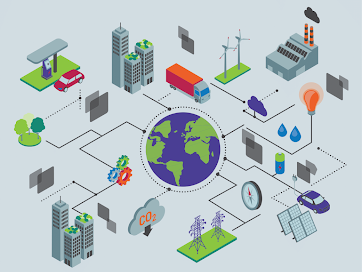
September 20, Utrecht, Netherlands and Chapel Hill, North Carolina — In response to the UN Climate Ambition Summit’s call for greater climate ambition and action, a new analysis from the Data-Driven EnviroLab at University of North Carolina at Chapel Hill and Utrecht University reveals subnational governments and private businesses are crucial drivers of climate action. The report spans 3,008 cities, 175 regions, and 2,843 companies across the G20 countries.
This report underscores the vital role that subnational governments and the private sector play in driving climate action and achieving global climate goals. As policymakers meet in New York City this week to discuss how to increase the ambition of climate efforts across every level and sector of society, understanding how cities, regions, and businesses can contribute and catalyze deeper reductions is critical.
Key findings include:
City and Regional Governments
As of March 2023, 3,008 cities and 175 regions, mostly from the European Union, committed to quantifiable emissions reductions, encompassing 2.11 billion people or 26.5% of the global population. Together, these subnational governments have set more than roughly 3,8003,799 quantifiable targets to cut greenhouse gas-warming emissions, mostly by 2030. Cities and regions in the European Union represent around 75 percent of subnational governments in the G20 making these pledges, although North American countries have also recorded notable increases in cities and regions with emission reduction pledges.
Private Sector
Between 2018 and 2022, companies have committed to an increasing number of emission reduction targets, with a significant focus on net-zero targets since 2021. These companies represent USD 15-27 trillion and together cover direct and purchased electricity emissions as large as current US emissions. The increasing trend is visible in almost all sectors, where the manufacturing and services sector show the largest number of targets. The power generation sector is the exception, showing a stabilizing trend in the number of targets since 2019. Importantly, companies are also increasingly setting targets beyond emissions from their own operations covering emissions from their value chain.
Path to Net-Zero
A growing number of cities, regions, and companies have pledged to achieve net-zero and carbon neutrality goals, with a substantial portion aiming for these targets before 2050. However, only 25% of companies have targets beyond 2030, and many subnational governments from countries in South Asia, Sub-Saharan Africa, and Latin America and the Caribbean lack quantifiable interim targets that would lend greater integrity to their net-zero pledges.
Ambition
Subnational governments’ ambition appears to be on the rise but may not be progressing at the pace required to meet the 1.5 degrees Celsius goal. Cities and regions in G20 countries aim to reduce approximately 9 Gt CO2 e emissions by 2060, with the United States, China, and Japan leading in emission reductions. Private sector ambitions are also increasing, however combined company efforts do not currently reach net-zero by 2050.
Dr. Mark Roeflsema, a Researcher at Utrecht University and one of the lead authors of the report, said:
“The increasing number of net-zero pledges is a positive sign, but we cannot afford to be complacent. We need more than just targets; we need transparency, measurable actions and short-term commitments to bridge the gap between ambition and reality. Our collective efforts are crucial to keep the 1.5-degree goal of the Paris Agreement alive.”
Dr. Kaihui Song, a post-doctoral research associate at the Data-Driven EnviroLab and one of the lead authors of the report, said:
“Cities and regions are at the forefront of climate action, demonstrating that local leadership can drive global change. It’s encouraging that so many subnational governments are engaged on climate change, especially considering recent setbacks due to the COVID-19 pandemic. We’re seeing these local governments increase the ambition of their efforts over time, but even still, more action by everyone.”
For more detailed insights and data, please refer to the Executive Summary of the report. The full report will be released next week.
Register for the 2023 Global Climate Action Report release webinar on Tuesday, September 26th here.
Contact:
Mark Roelfsema – Utrecht University (m.r.roelfsema@uu.nl)
Angel Hsu – Data Driven Lab (angel.hsu@unc.edu)

Recent Comments